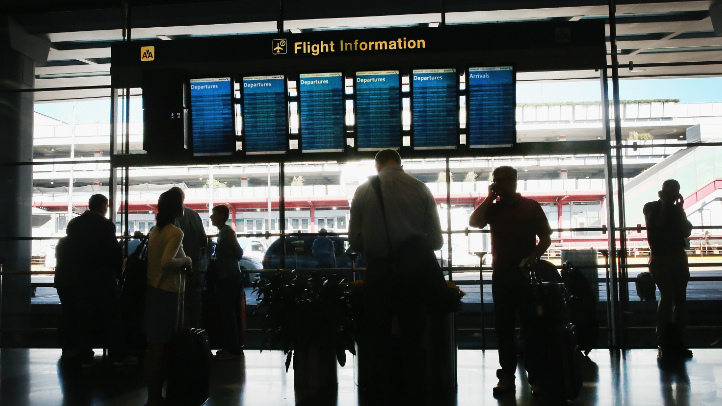Fresh off the big sell in Switzerland, the Chicago 2016 team prepared to make another pitch at home on Monday. They're trying to sell the City Council on a contract that would put taxpayers on the hook if the Games are a financial flop.
Patrick Ryan, who made a fortune calculating risk, said this is a sale he's confident he can make.
"We anticipate submitting a plan to the City Council that will address their concerns and satisfy them that any remaining financial risk is small enough and improbable enough for them to be comfortable," Ryan said.
Ryan said a full package for consideration by what may be a reluctant City Council may be two months away. He said that he and his team would "look like dummies" if they tried to sell the council on the full Olympic agreement today.
Ryan revealed that a few weeks ago he personally travelled to Olympic headquarters in Switzerland in an effort to amend the contract the IOC was demanding.
But the International Olympic Committee would not budge. And with Chicago's competitors prepared to sign the contract as is, Ryan said he and the city were left with no choice.
"They have never given the games to anyone who didn't sign the host city contract," he said.
Local
But it goes without saying that not everyone is sold.
"We seriously feel this would be the greatest disaster that has hit the city since the great fire," said Tom Tresser, of No Games Chicago. He also travelled to Switzerland last week.
His group doesn't believe the financials or the benefits that planners promise would accrue from the games.
"Those would be suckers if they thought that. If we have all this money laying around, spend it now, today, on things that need to be fixed," Tresser said.
Some aldermen have balked at what they believe is an unexpected turn in the road which puts taxpayers at risk. But Ryan, reminding a roomful of reporters that he made a fortune in the risk management business, said he believes he can convince council members that taxpayers would not be in jeopardy if Mayor Daley puts Chicago's name on the dotted line.
"We anticipate submitting a plan to the city council that will address their concerns," Ryan said, "and satisfy them that any remaining financial risk is small enough, and improbable enough for them to be comfortable."
Chicago 2016 says in an effort to further protect taxpayers from any public monies being used to pay off possible losses, they will take out an additional $500 million in insurance. Ryan said today such a policy would cost between $15 million and $20 million, and that the premium would be paid by Chicago 2016, not by the City of Chicago. And at the same time, he said he was confident about a public/private financing plan, which "is better protecting the taxpayers than a government guarantee alone."
The 2016 financing plan takes into account worst-case scenarios which many Olympic observers contend are rare. For instance, there are contingencies for the cancellation of entire nations, such as the USA's boycott of the Moscow Olympics in 1980. Other policies would kick in if the Games themselves are cancelled, as they were during World War II. Still other financial scenarios anticipate the possibility of a key sponsor going out of business, taking their anticipated millions with them.
Asked if it would take a 9/11 type scenario for taxpayers' dollars to be put in jeopardy, Ryan said no, declaring without hesitation, "a 9/11 wouldn't even get close to hitting this!"
Ryan's announcement that his full report to the City Council would not come until 45 to 60 days from now, would mean a possible council vote on the plan could not come until at least August, close to the end of Chicago's campaign.
The host city selection by the International Olympic Committee is to come October 2nd in Copenhagen.
Ryan said that if the City Council doesn't approve the plan, the city's Olympic dream could vanish.



